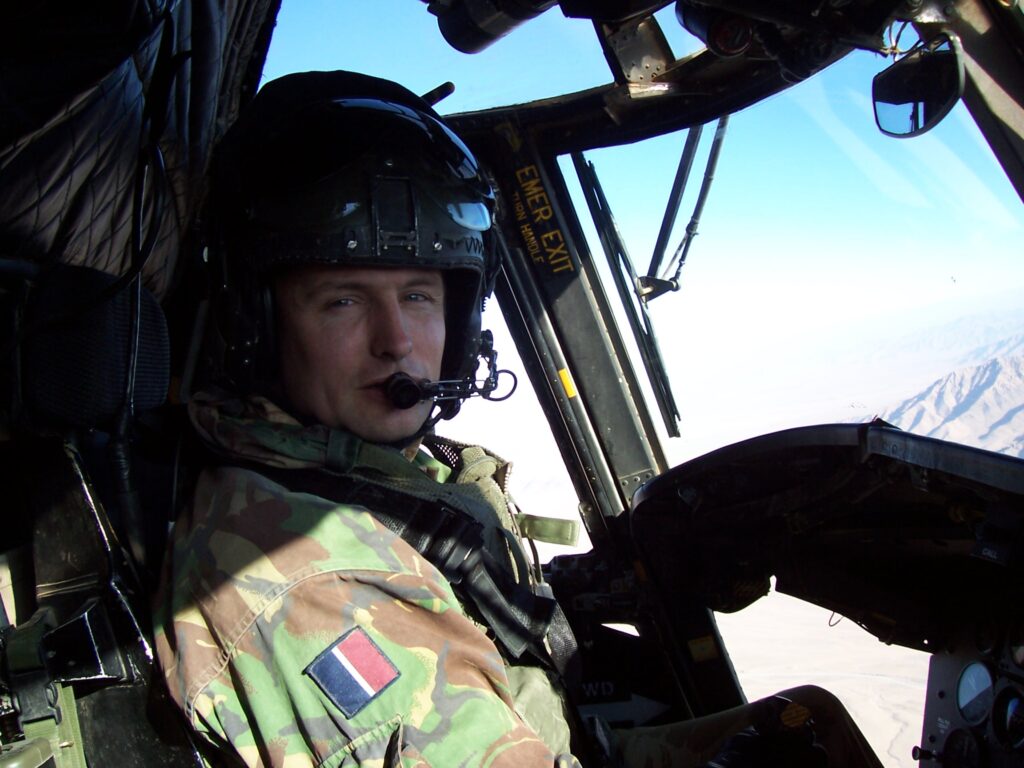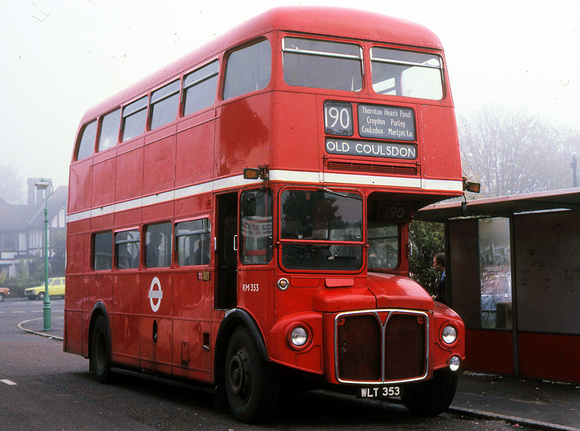The World Aviation Training Summit in Florida in April, recognising that mental fitness and mental health in pilots is key, included my speech on incorporating performance coaching into pilot training and maintaining pilot readiness.
By Jason Davenhill

Performance coaching has been well proven in sports and is gaining traction with business executives. It has been adopted by the U.S. Air Force during training at its Colorado Springs Academy and across the Royal Air Forces and several other air forces. Its philosophy is about building in readiness – not just physical readiness, but the mental readiness and resilience vital in aviation.
I have been an aviation performance coach for many years. I believe it is the most powerful tool I have come across in aviation. It helps you understand yourself better. It’s like being able to watch yourself in the simulator without anyone else criticising.
Good coaching is like being a good pilot: it’s intuitive. Just as you listen to what the aircraft is telling you, a good coach will listen carefully to what you’re saying and, more importantly, what you’re not saying.
As aviation begins to explore how to help pilots maintain readiness for the flight deck it must also include coaching with which it is only now coming to grips.
Whilst psychotherapy might be seen as helping people “walk” again after an incident, coaching is about helping people be as mentally strong and flexible as they can be, so they can deal with anything life throws at them.
Let me tell you a story:
Colin was a very experienced pilot. An ex-military helicopter and multi-engine pilot, he had held loads of senior roles. He was now the senior pilot of a small executive jet organisation, but he wasn’t enjoying it. He felt that his junior colleagues were sharper than he was and that he just wasn’t ‘up to it’ anymore. His wife knew that her favourite quarter back worked with a performance coach to keep him at the top of his game.
“Why not try an aircrew coach?” she suggested. He contacted me and we worked together for a couple of sessions. By the end, Colin knew exactly how to change his approach. He is now loving it and proud once again of his competence. Colin isn’t his real name, but the story is true.
My name is Jason Davenhill. I spent most of my life in the Royal Air Force primarily as a Chinook helicopter pilot and instructor. As life moved on, I was able to teach army, navy and air force pilots on helicopters and fixed wing at every level from elementary to front line. When I left the RAF, I turned my flying qualifications into civilian ones.
Halfway through this journey, I trained to become an aircrew performance coaching. I introduced coaching to the army school of flying where I was the RAF deputy chief flying instructor. It was the first time we had had a whole course pass and, better still, 4 of the 5 prize winners came to me for coaching. My experience tells me performance coaching enables better training results but also greater ability to perform and lead on the flight deck. I think I can often achieve more in an hour on the ground than I can in two hours in the air.
Mental Blocks
When Simone Biles bowed out of the 2021 Olympics saying she was having mental health issues, it was a game changer in understanding how to approach mental health, fitness and performance. Her head was not in the game. She was not happy and had the strength to make a stand on behalf of her health and the team. It’s called being mentally blocked, like Colin, who’s head was not in the game.
Most of why we struggle in life, in the flight deck or air traffic control tower is because of mental blocks. Coaching is about having a discussion with someone who is entirely on your side. The discussion and space allow you to reveal what’s really going on underneath. Pilots are very capable and very proud. In my experience, few reveal their concerns about their professional abilities and performance to fellow pilots. That’s where coaching comes in.
Most flying instructors will tell you how they would solve your problem. Why wouldn’t they? Pilots are problem solvers. That is not what you need. Only you can solve your issues or identify the changes you need to be the best version of yourself in life and on the flight deck. A good coach will help you probe what’s going on and then create the conditions for you to find your own way forward.
What You Need to Know in Choosing a Coach
After my speech during the World Airline Training Summit in the U.S. which gathered the top trainers from around the world, I was asked to write an article about coaching as part of the mental health and performance toolkit. I was asked for some idea on how to find a coach. Many have said there seem to be a lot of people claiming to be coaches, wondering if there is any accepted qualification?
That is an interesting question. There are several organisations that accredit coaches – the Association for Coaching (AC), the International Coaching Federation (ICF), European Mentoring and Coaching Council (EMCC), the Internation Association of Coaching (IAC), Center for Credentialing and Education (CCE) and probably several others.
The psychotherapy/psychology/coaching world is a bit like the world of aviation: flying is mostly keeping half blue, half green out of the front window. Yet pilots must pass a lot of theory exams that bear little relation to the actual business of landing an aircraft safely. Many coaching qualifications test theory rather than ability.
Good coaching is like being a good pilot: it’s intuitive. Just as you listen to what the aircraft is telling you, a good coach will listen carefully to what you’re saying and, more importantly, what you’re not saying.
Things to look for in a coach:
1. They listen to you. Listening without judgment is a rare skill. I have encountered several coaches who ‘leap on’ individual words and try and ‘fix’ those rather than listening to the whole story. That is not what you need.
2. They can work within your paradigm: your model of the world. Our brain isn’t big enough to deal with every nuance in the world around us, so we make sense of it through analogies, stories and metaphors. Think about how we teach children right from wrong: through fairy stories. I encountered a lady teaching a course I was on, technically a senior coach, who couldn’t work with my models of how aviation supervision has a lot of similarities with coaching supervision. It was clear to me that she didn’t actually understand where I was coming from and, therefore, didn’t seem to value my perspective. Rather than walking with me, helping me unpick my metaphors, she told me I was wrong to think like that…..about the worst thing a coach can do.
3. They have the imagination and flexibility to keep up with your stories and analogies. We use stories like buses. We get on and get off when they’re going our way.

4. They don’t try and sell you a package; they tailor their coaching to you. Lots of the coaching ‘industry’ and indeed psychotherapy world seems to be about delivering complete packages. In aviation we think that people only learn to fly if they are put through a linear course. In fact, different people learn to fly at different rates and in different ways. The same is true of coaching and mental health therapy. They are individualized and cannot then be part of a “package.”
5. They have sufficient awareness of your world to be able to work with your technical issues. Aviation is almost like a religion. You don’t know how immersed you are in the artifacts. A good coach will find ways to ‘get inside’ the technical terminology to get to the root of the issue.
6. They can probe these technical issues to see what’s going on underneath. In life many real issues ‘hide’ behind the words we use and believe. Often, if someone says they do something it’s normally the one thing they’re not doing. For instance, politicians often say “let me be honest with you” when they’re patently not. That’s an extreme example, but if you listen carefully it’s happening all the time. We all do it, to a certain extent. Talk the talk rather than walking the walk.
7. They are affiliated to a coaching organisation. Just about everyone can call themselves a coach. Some are very good. Lots are merely ok. Affiliation to an organisation won’t guarantee the quality, but it will ensure that you get someone who cares about being the best they can be.
8. They have regular supervision of their practice. Coaches are in a very powerful position. But they are still just people, subject to their own biases and perceptions. Coaching supervision helps them reframe their own perspective, maintain their own self-improvement and keeps them ‘honest’.
As Desmond Tutu said: “We spend all our time fishing people out of the river. Why don’t we go upstream and find out why they’re falling in, in the first place?”. I suggest that coaching is about teaching people to swim and actually enjoying the water, so they don’t get themselves in trouble in the first place.
You can find me on LinkedIn or at my website: www.inflowperformance.com if you’d like to know more about helping you understand what coaching can do for you and what to look for.
Happy flying.
About the author: Jason Davenhill spent 30 years in the military first as a Royal Marines commando and then Royal Air Force pilot and instructor. A high-level track athlete and keen musician he has been coaching and supervising coaches for over a decade.